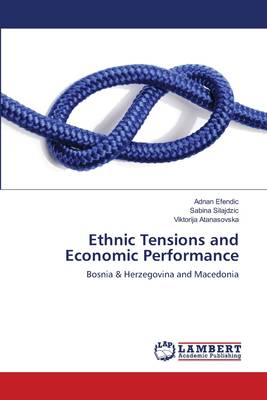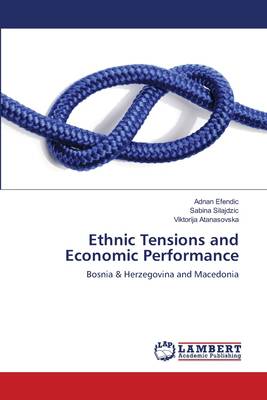
- Afhalen na 1 uur in een winkel met voorraad
- Gratis thuislevering in België vanaf € 30
- Ruim aanbod met 7 miljoen producten
- Afhalen na 1 uur in een winkel met voorraad
- Gratis thuislevering in België vanaf € 30
- Ruim aanbod met 7 miljoen producten
Zoeken
Ethnic Tensions and Economic Performance
Bosnia & Herzegovina and Macedonia
Adnan Efendic, Sabina Silajdzic, Viktorija Atanasovska
Paperback | Engels
€ 41,45
+ 82 punten
Omschrijving
We empirically analyze the relationship between ethnic tensions, institutional and economic performance in Bosnia and Herzegovina (BiH), including a qualitative analysis of this issue for BiH and Macedonia. The research is conducted by a mixed methods approach, in which questionnaire surveys of the household and business sectors in BiH are supplemented by semi-structured interviews. We find that the most important factors affecting both individual economic performance and individual ethnic tolerance in BiH are employment status, education and age; they both singly and in combination move individuals in BiH towards greater probability of being both prosperous and tolerant. The qualitative analysis based on interviews conducted in BiH and Macedonia supports similar conclusions by identifying that the most important factors affecting ethnic tensions include: employment, education, and neighborhood. Finally, the empirical findings from the business survey in BiH suggest that ethnic tensions inherent in company's culture, formal institutions and firm's environment adversely affect the export performance of firms located in these communities.
Specificaties
Betrokkenen
- Auteur(s):
- Uitgeverij:
Inhoud
- Aantal bladzijden:
- 188
- Taal:
- Engels
Eigenschappen
- Productcode (EAN):
- 9783659488924
- Verschijningsdatum:
- 19/02/2014
- Uitvoering:
- Paperback
- Afmetingen:
- 150 mm x 220 mm
- Gewicht:
- 270 g

Alleen bij Standaard Boekhandel
+ 82 punten op je klantenkaart van Standaard Boekhandel
Beoordelingen
We publiceren alleen reviews die voldoen aan de voorwaarden voor reviews. Bekijk onze voorwaarden voor reviews.











